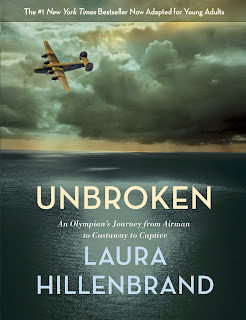My personal and professional opinion of assigned summer reading is that it should be a lot like summer romance: short and sweet, and maybe just a little bit torrid. The selected texts were chosen specifically because they meet these criteria, and because I like them.
Please note that students (ie, incoming AP English juniors at Woodrow Wilson) should have both novels read and the assignment completed by the start of the fall semester 2015-2016; students should further anticipate that there will be a diagnostic exam based on the material for the purpose of figuring out approximately your skill level and potential needs.
THE BOOKS:
AP English III:
The Things They Carried by Tim O'Brien.
This is O'Brien's third book about his experiences in the Vietnam War. A collection of short stories, this book blurs the line between "story truth" and "happening truth." It is an extraordinary book that will really get into your head and make you ponder the nature of war, heroism, cowardice, and value of humanity.
One of these short stories has been made into a
movie, but it's a Kiefer Sutherland film, and that may or may not turn you off. If you really like the idea of telling the truth of the matter vs. telling the fact of the matter, then you really need to watch Akira Kurosawa's
Rashomon. It's an amazing pairing with this book, really.
The Reluctant Fundamentalist by Mohsin Hamid.
The Reluctant Fundamentalist is the second novel by Pakistani author Mohsin Hamid, and it is not the story you anticipate. I will fully admit that I was skeptical upon opening the book, but I was quickly disabused of any concerns--in fact, I couldn't put it down. A political thriller, this novella is a classic story of post-9/11 disillusionment with the American Dream and all its wretched excess. It's an awful lot like The Great Gatsby, but Baz Luhrmann hasn't messed it up yet. Part-spy-thriller, part-romance, this story will make you think.
THE ASSIGNMENT:
Incoming AP juniors will write an original rhetorical precis for each of the novels they have read this summer.
What is a precis?
A precis is a highly structured four sentence paragraph that records the essential elements of a unit of spoken or written discourse, including the name of the speaker/writer, the context of the delivery, the major assertion, the mode of development and/or support, the stated and/or apparent purpose, and the relationship established between the speaker/writer and the audience. Each of the four sentences requires specific information; students are also encouraged to use brief quotations to convey a sense of style and tone.
What is the format of a precis?
- Name of author, [optional: a phrase describing author], genre and title of work date in parentheses (additional publishing information in parentheses or note); a rhetorically accurate verb (such as "assert," "argue," suggest," "imply," "claim," etc.); and a THAT clause containing the major assertion (thesis statement) of the work.
- An explanation of how the author develops and/or supports the thesis, usually in chronological order.
- A statement of the author's apparent purpose followed by an "in order" phrase.
- A description of the intended audience and/or the relationship the author establishes with the audience.
When is it due?
This assignment is due the Friday of the first week of school.
Questions, comments, or concerns?
Please feel free to drop me a line at
pmcghee@dallasisd.org with your inquiry, and I will reply at my earliest convenience.
***UPDATE***
I have been asked about providing an example of a precis
. Oregon State has a pretty good one, and it can be found
by clicking here; however, an entire world of examples can be found
by clicking here. Good luck!











